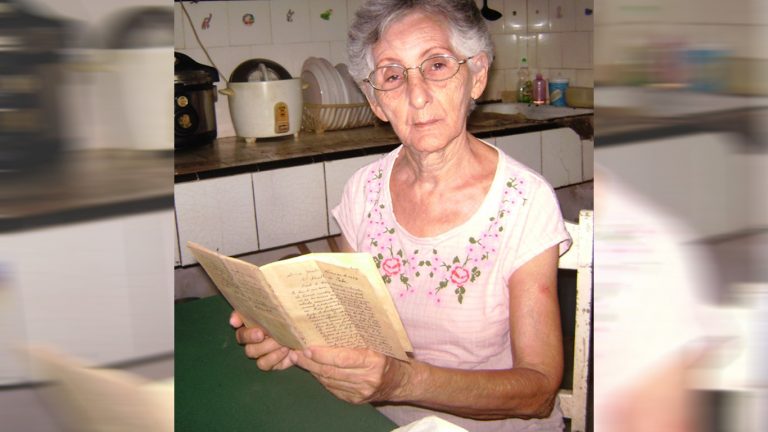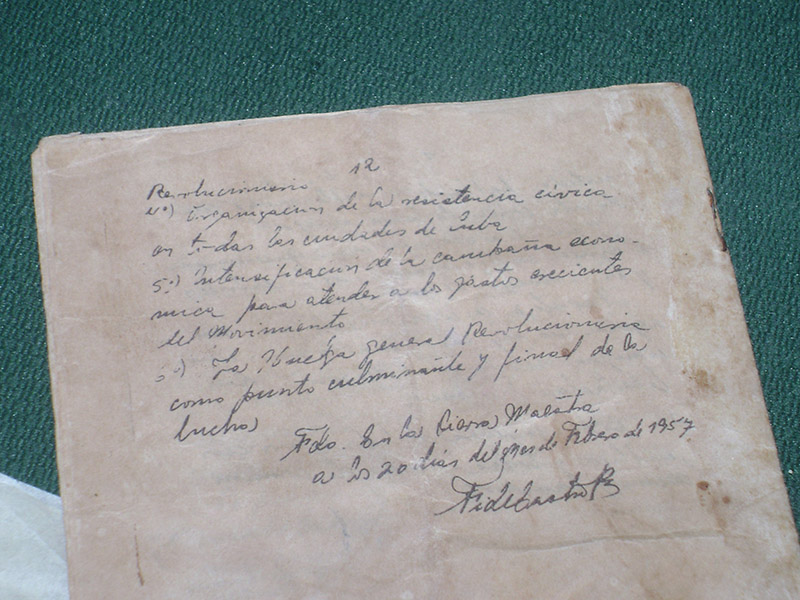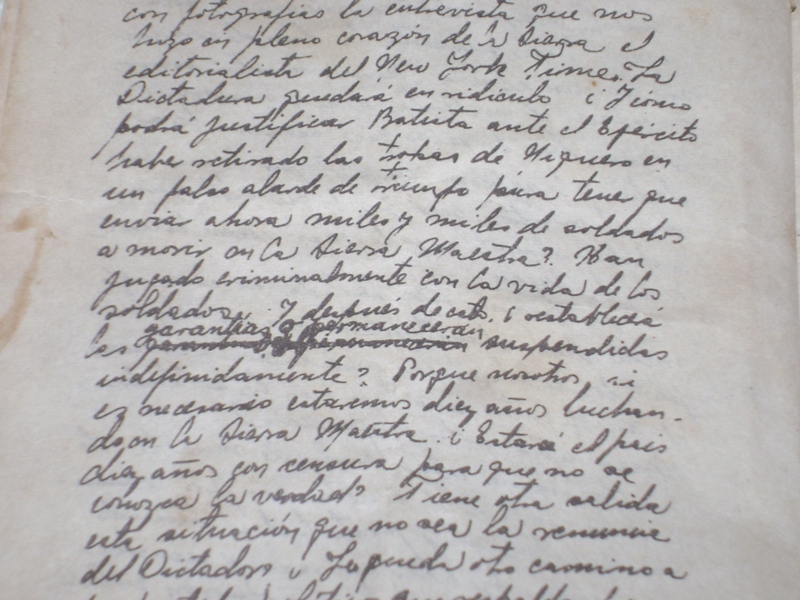In these days it seems that the history of the Cuban Revolution joins its threads and embroiders in time those of its children who from Camagüey contributed with courage to its unstoppable step.
Another of these curiosities has come to my hands and with the respect that inspires me, I have the honor to share it with you. I must tell you that several protagonists are linked here
The Bearer
José Ramón Márquez García (Bebo) was a bank worker most of his life, from a very young age he joined the July 26 movement in Camagüey with Alfredo Álvarez Mola, his partner and friend. When Alfredito was murdered, by a snitch of a snitch named Basulto, Bebo devoted himself to saving his memory and doing justice to the undue death. With the Revolutionary triumph, he managed to exhume his lost remains at the San Miguelito farm and bring them to the General Cemetery of Camagüey, where they rest in a dignified pantheon.
He always kept some documents of that time with zeal. After his death, about 13 years ago, they remained intact in the same drawer, preserved by his wife – Iris Martínez Martínez – but recently … with the celebration of the 60th anniversary of the enactment of the Agrarian Reform Law, she felt the need to bring to light one of his relics.
It is a manuscript with the handwriting of Commander in Chief Fidel Castro Ruz, dated and signed on February 20, 1957, from the Sierra Maestra, the heading is addressed to the people of Cuba and between the notes and deletions, you can see concern for the misery and hunger of the Cuban villages, their certainty of being close to defeating Batista and once free, the importance of recovering the Cuban economy with productive reforms from the land. In my opinion it is the closest thing to a project of Agrarian Reform.
The how and why Bebo reached this document of 12 tiny pages, is a secret that took forever, Iris supposed that it came by Alfredo Álvarez Mola, (Alfredito for them) or that, in one of his trips to La Sierra, Fidel could have given him the document to save it.
His loving companion fulfilled his will to continue keeping with modesty and infinite loyalty to the ideals, all these traces of history, that 62 years later, lead us to find Fidel’s thought directed to the farmers, thanks to the delicate gesture of Iris.
Poetry was a common good between Iris and Bebo, in one of the compositions to remember it he says that “he waits for it in an infinite dawn”, infinite is the value of his noble effort, for having saved this manuscript that today comes to light, as a legacy of time for the new generations, those who will take a look at this embroidery of history that comes to us in black and white.
Fotos: Jesmir Varona Socías
Translated into English by Yisel Torres Ruiz









